MercoPress. South Atlantic News Agency
Brazil
-
Saturday, March 26th 2011 - 08:20 UTC
Brazil’s UN vote on Iran marks first great difference between Dilma and Lula da Silva
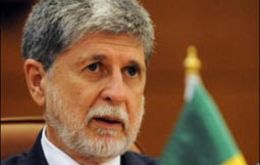
Brazil’s vote in the UN Human Rights Council in support of a rapporteur to monitor human rights in Iran, proposed by the US, signals the first great divergence in foreign policy between the current administration of President Dilma Rousseff and her predecessor and mentor Lula da Silva.
-
Friday, March 25th 2011 - 01:14 UTC
Brazilian government wants to sack CEO of the country’s largest corporation
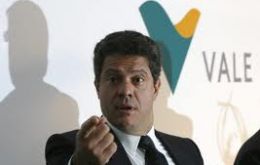
Brazilian government is facing a political backlash over its apparent efforts to force out the head of mining giant Vale, the world’s largest iron ore miner. Opposition leaders on Thursday demanded Finance Minister Guido Mantega explain reports he asked a shareholder of Vale to help seek a replacement for CEO Roger Agnelli.
-
Thursday, March 24th 2011 - 18:05 UTC
US must be more pro-active if it wants access to Brazilian oil, says Petrobras
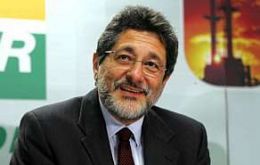
The United States must pay more importance to its strategic alliance with Brazil if it really wants to benefit from Petrobras’ recently discovered deep-water oil and natural gas reserves in the Atlantic Ocean, the company’s CEO, Jose Sergio Gabrielli, said.
-
Wednesday, March 23rd 2011 - 02:44 UTC
Brazil reiterates significance of Mercosur and strategic relation with Argentina
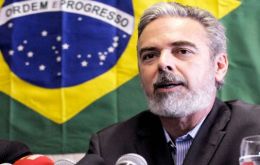
Brazil reaffirmed the significance of Mercosur for President Dilma Rousseff administration’s foreign policy and underlined the strategic relation with Argentina, Brazil’s main associate in the trade block.
-
Tuesday, March 22nd 2011 - 22:17 UTC
Brazilian president conditions pending visit to Paraguay
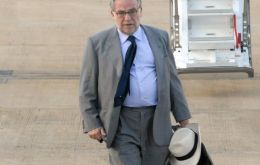
President Dilma Rousseff will not be visiting Paraguay until the Brazilian Congress approves the Itaipú reversal notes which establish a greater compensation for surplus power purchased from Paraguay by Latin America’s energy hungry largest economy.
-
Monday, March 21st 2011 - 21:52 UTC
US Export-Import bank loans Brazil 3 billion USD for oil and World Cup
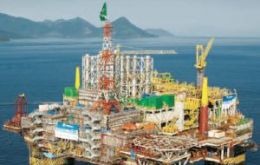
The US government's export credit agency has authorized $3 billion in financing for Brazil, including 2 billion US dollars for the Brazilian government-managed oil company Petrobras.
-
Monday, March 21st 2011 - 21:50 UTC
Speculation that Brazil’s s steel industry is in the process of consolidation
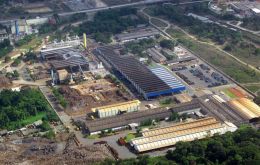
Brazil’s biggest maker of steel products for the auto and construction industries, Gerdau SA, plans to sell as much as 4.2 billion Real (2.5 billion USD) of stock, boosting speculation that it has plans to buy a stake in a Brazilian rival, most probably Usiminas.
-
Monday, March 21st 2011 - 07:11 UTC
Obama says Brazil’s transition to democracy an example for the Arab world

President Barack Obama, declaring support for Brazil’s rising global economic clout, said the country’s transition from dictatorship to democracy can serve as a model for pro-democracy movements around the world, including in North Africa and the Middle East.
-
Sunday, March 20th 2011 - 08:20 UTC
Obama promises Brazil will be treated the same way as China and India

Addressing the Brazilian Industry Federation, in Brasilia President Barack Obama emphasized the possibilities for partnership between the two countries mentioning trade, energy, infrastructure and education. The US leader said that “the future has arrived in Brazil” and promised the US would deal with the country in the same way it does with China and India.
-
Sunday, March 20th 2011 - 08:12 UTC
US/Brazil to advance trade and economic cooperation agreement

Brazil and the United States agreed on Saturday to boost future cooperation on a range of key issues including trade and energy. The agreements were signed on the first day of US President Barack Obama's two-day visit to Brazil, where he met with Brazilian counterpart Dilma Rousseff. They include TECA, a trade and economic cooperation agreement with a road map for future negotiations.
